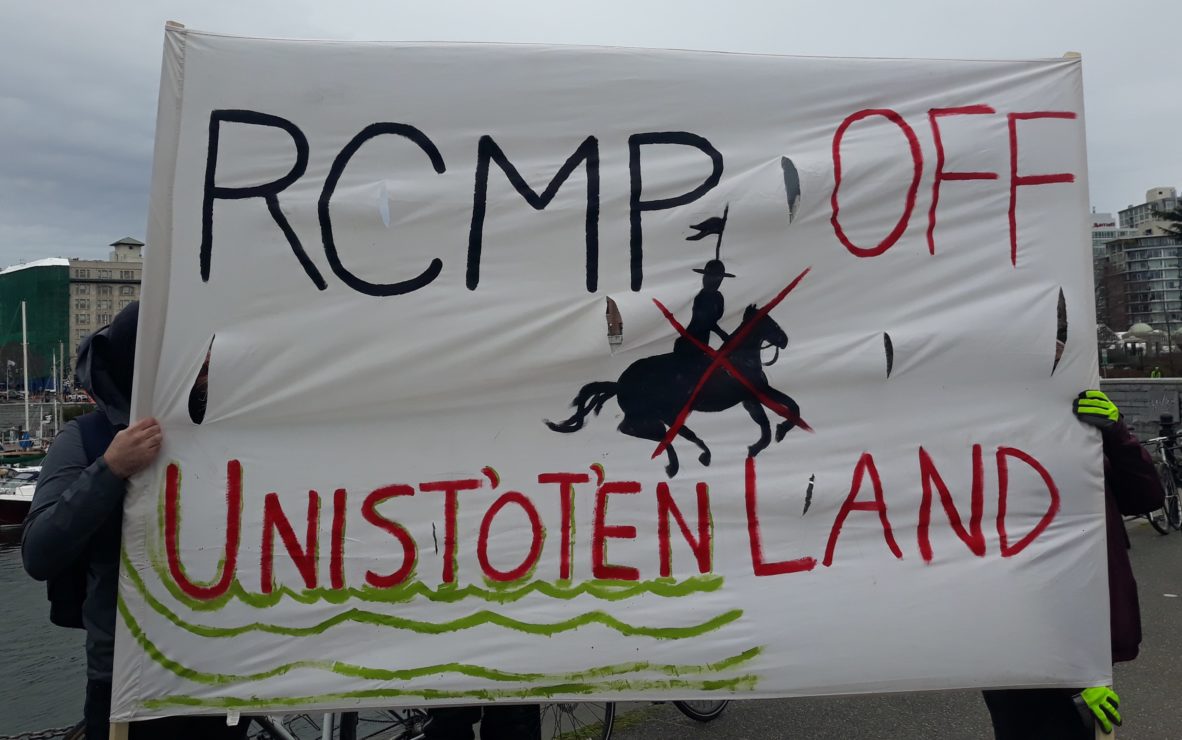Although B.C. has voted UNDRIP into law, Indigenous nations will still not have veto power over projects involving their lands

The B.C. government stated its intention to write the UN Declaration on the rights of Indigenous Peoples (UNDRIP) into B.C. law in a throne speech on Feb. 12, 2019. On Oct. 24, the declaration was introduced to the B.C. legislature in the form of Bill 41. Now that it was unanimously passed on Nov. 27, B.C. will have to come up with a plan to achieve UNDRIP’s objectives in cooperation and consultation with Indigenous peoples.
UNDRIP, debated for two decades before being adopted by the UN General Assembly on Sep. 13, 2007, lays out the collective, individual, and cultural rights of Indigenous peoples living under colonial governments. The declaration grants Indigenous peoples basic human rights and freedoms under the Universal Declaration of Human Rights, the Charter of the United Nations, and international law, as well as the right to dignity, self-determination, and to maintain their own institutions and traditions.
This might seem to be stating the obvious — why would any person living in a developed, democratic country like Canada not have these basic rights? But, Canada has not consistently been on board with this whole “treating-Indigenous-peoples-like-people” thing.
For example, we could talk about how Canada has perpetrated much of the UN’s definition of genocide on Indigenous peoples by killing them, causing serious mental harm, forcing the sterilization of Indigenous women, and removing entire generations of children from their communities, how Indigenous children were served up as prey for sexual predators and violent abusers both in residential schools and in the foster care system, and how the Missing and Murdered Indigenous Women and Girls inquiry found that Indigenous women and girls are the ideal target for anyone looking to get away with murder, but let’s not get sidetracked. I’m here to assuage the fears of those concerned about the ramifications of adopting a declaration designed to prevent the exploitation of Indigenous peoples, not dwell on the unpalatable realities of Canada’s past (and present).
Under former Prime Minister Stephen Harper, Canada along with the U.S., Australia, and New Zealand — all colonial countries with problematic Indigenous relations — voted against UNDRIP’s adoption by the UN General Assembly. This objection was retracted by the Trudeau government, but the federal government still failed to implement the declaration.
Article 32 of UNDRIP recognizes Indigenous peoples’ “right to determine and develop priorities and strategies for the development or use of their lands or territories and other resources,” and says that “states shall consult and cooperate in good faith with the Indigenous peoples concerned … in order to obtain their free and informed consent prior to the approval of any project affecting their lands or territories and other resources.”
This concept of “free, prior, and informed consent” (FPIC) that gives Indigenous peoples the right to withhold and/or withdraw their consent for any projects that affect their lands is a matter of some irritation for those who would rather clearcut, mine, overfish, or otherwise exploit any land they choose.
The Harper government argued that adopting UNDRIP would give Indigenous nations veto power over natural resource projects and other developments. This perspective frames UNDRIP as a threat to the well-being of Canada and Canadians.
This is simply not true.
We could examine how the purpose of FPIC is not to give certain groups veto power, and how it is actually about facilitating discussion with Indigenous communities and making Indigenous peoples partners in decision-making processes that affect them, but why bother? The writers of UNDRIP wrote the document in such a way that governments can completely avoid any messy or inconvenient processes, even if they choose to adopt the declaration.
The thing about UNDRIP that protects Canadians from Indigenous people wielding veto power is that the declaration wasn’t written by Indigenous peoples trying to stage a takeover of what is in B.C. unceded territory. Rather, the UN declaration was largely drafted and edited by English-speaking UN member-states, who altered or eliminated threatening content, protecting themselves from having to give too much ground, in both a literal and a metaphorical sense.
Most importantly, the UN member-states who drafted UNDRIP included an escape clause.
Article 46(1), which is included in B.C.’s Bill 41, states that “Nothing in this Declaration may be … construed as authorizing or encouraging any action which would dismember or impair, totally or in part, the territorial integrity or political unity of sovereign and independent states.”
This means that no matter what discussions are had in which the government chooses to include Indigenous peoples, it can still override the decisions of Indigenous communities, if those communities are standing in the way of “territorial integrity” or “political unity.” Both those terms, by the way, are left conveniently undefined, and it’s safe to assume that maintaining the integrity of Indigenous territory will not be treated with the same reverence as state territory, especially if there is, say, a pipeline to be built. After all, nothing interferes with political unity like a threat to the economy — just look at Alberta’s reaction to the suggestion that perhaps some economic diversification might be a good idea.
So, fretful British Columbians can sit back and relax. Bill 41 will not require us to consider Indigenous peoples any more than we already do(n’t), and we can continue to strip the land of irreplaceable resources without being hindered by any disagreeable notions of “consent.”







